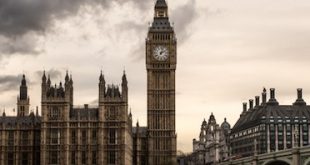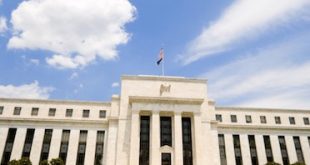When it comes to professional advancement, women can be their own worst enemy, right? That’s pretty much an accepted fact at this point. But is it true? For years, feminists and workplace diversity proponents have grappled with the suggestion that high-ranking women actively limit the advancement of their female subordinates, a phenomenon known as Queen Bee syndrome. Female executives, the thinking goes, believe that there is limited room for women at the top, so preventing others from...
Read More »Unshakeable Europe
It’s hard to pick up a newspaper these days without reading yet another story about yet another crisis somewhere in Europe, whether it’s tensions between Ukraine and Russia, the recurring threat of Grexit, banking sector stress, or political uncertainty in Portugal and Spain. Those are the headlines. Remarkably, none has come close to derailing the ongoing regional economic recovery that’s now well into its third year. Even after the Brexit vote shocked financial markets, cyclical indicators...
Read More »US Election: Status Quo vs. Who Knows?
What politicians say and what presidents do often have little to do with one another. U.S. President Franklin D. Roosevelt, for example, implemented the New Deal a year after the Democratic Party pledged to slash government spending. Still, with the U.S. presidential election fast approaching, the economists on Credit Suisse’s Global Markets team analyzed the campaign promises made to date in the hope of giving investors some sense of what the future might hold. They determined that if...
Read More »A Blueprint for Brazil’s Fiscal Reforms
It went down to the wire, but the stadiums are complete, the brand-new metro line is up and running, and the 2016 Olympic Games in Rio de Janeiro are officially underway. When it comes to the Brazilian economy, on the other hand, there is still more work to be done. While there has been some progress in resolving the political uncertainty dogging the country, the fiscal consolidation that needs to happen for the sake of Brazil’s longer-term economic health still seems to be far off....
Read More »Blades Whirring Over Japan?
Japanese central bankers are not in an enviable position. The year-over-year growth rate of the country’s core consumer price index was -0.4 percent in May, marking the third consecutive monthly decline—and this after three years of Abenomics. Brexit certainly hasn’t helped. The yen has strengthened from ¥121 to the dollar in February 2016 to ¥105 in late July. That’s had the effect of reducing import prices, but it has also put downward pressure on inflation. Japan economists on...
Read More »Brexit and Brakes
And so it begins. Even before the Brexit vote, corporate profits in the U.K. were already under pressure from a combination of sluggish global growth and rising wages. But now, several weeks after referendum, business confidence in the U.K. is officially cratering. Credit Suisse’s Global Markets team expects corporate pessimism to ultimately translate into reduced investment and hiring, and the combination of rising unemployment and a weaker pound to squeeze household income. With uncertainty...
Read More »A Longer Wait for the Fed
The Federal Reserve is expected to keep monetary policy unchanged over the next few months as the central bank continues to assess the underlying strength of the U.S. economy, especially after the Brexit vote raised concerns that a potential slowdown in the U.K. economy could have a significant spillover effect globally. Credit Suisse’s Global Markets team believes that the vote has, in fact, exacerbated some tendencies within the Fed that were in place long before Britain’s June 23...
Read More »Asian Policy Amid Brexit Angst
For Asia’s export-driven economies, last month’s Brexit vote could rub salt in a nagging wound. China’s slowdown has already hampered export sectors in countries that count the Middle Kingdom as their largest trading partner. While a Brexit-based recession that is limited to the United Kingdom would have a minimal direct impact on the region — average export exposure to the U.K. from non-Japan Asia is about 0.9 percent of GDP — a downturn that spreads to Europe would inflict...
Read More »Next Up for Central Banks: Infrastructure Investments?
In the years following the global financial crisis, the world’s leading economies have found relief through aggressive monetary policy. But with interest rates slashed to historic lows and central bank balance sheets significantly larger as a percent of GDP than they were before the financial crisis, policymakers will need alternatives to interest rate cuts and conventional quantitative easing when the next recession comes along. U.S. central bankers have cut real interest rates between...
Read More »Is Globalization Finished?
The shock of Great Britain’s vote to leave the European Union has already thrown global financial markets into disarray and cost Prime Minister David Cameron his job, but it will take years before the geopolitical impact of the Brexit referendum fully materializes. The political uncertainty generated by the “Leave” vote will reach far beyond 10 Downing Street, potentially into Scotland, Northern Ireland, Eurozone capitals, and beyond. It may even mark the beginning of the end of...
Read More » Swiss Economicblogs.org
Swiss Economicblogs.org










